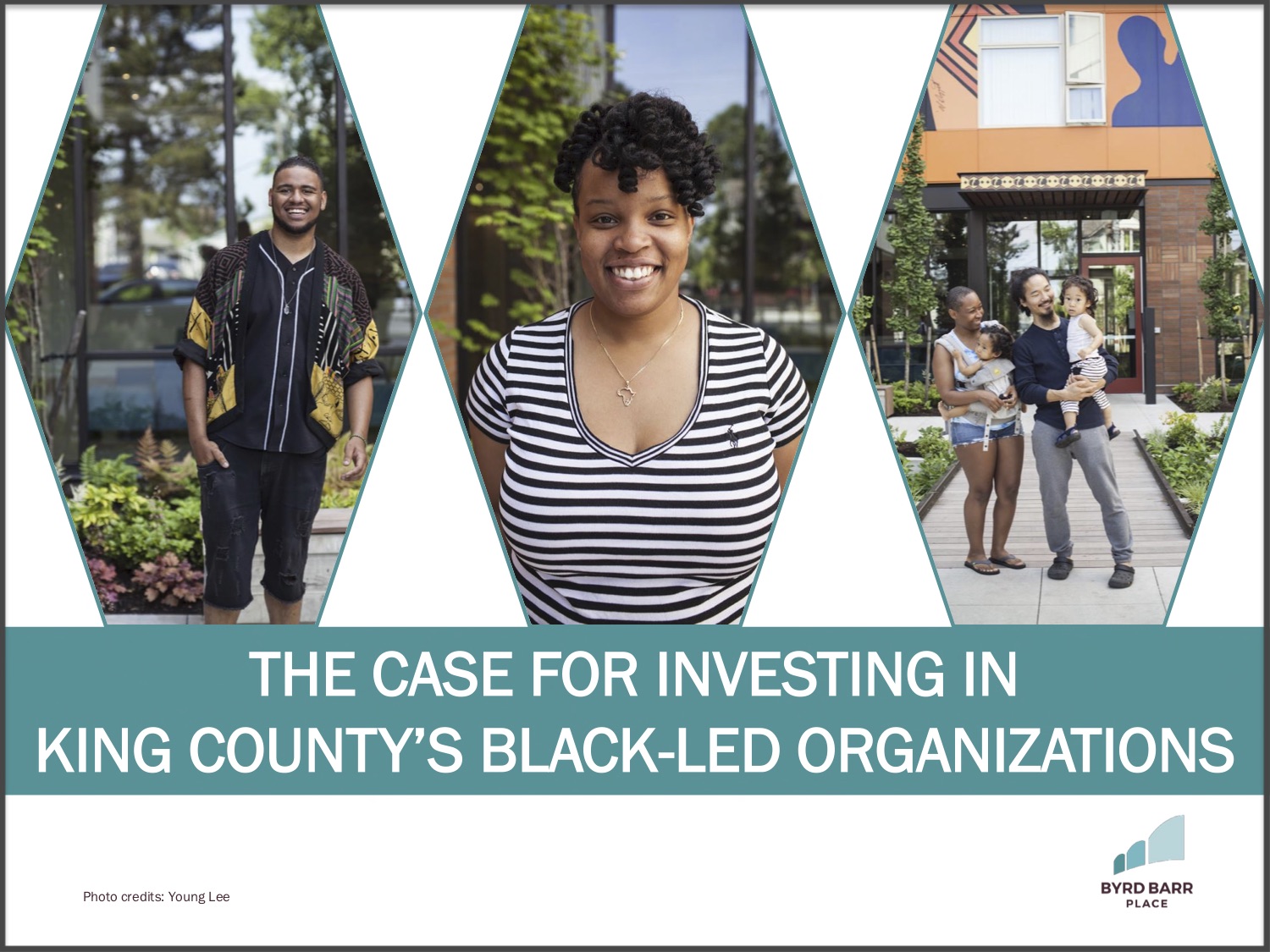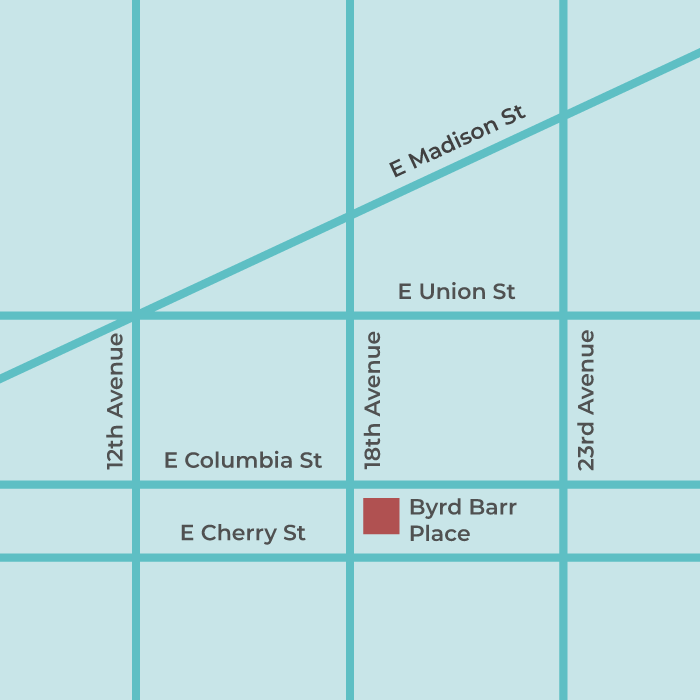
Over the last year, Byrd Barr Place, along with Cardea Services, had the honor to talk with and hear from Black leaders across King County about the truth of their experiences guiding community nonprofits. We wanted to lift up Black voices and the strengths of the Black-led organizations that are providing essential services to communities. We also wanted to shed light on the barriers that Black-led organizations face because of systemic racism and persistent under-investment.
From these conversations and surveys, we produced a report, The Case for Investing in King County’s Black-led Organizations that shares our findings, along with recommendations for taking a culturally centered approach to philanthropy.
These are especially challenging times with compounding crises in which Black people, immigrants and refugees, Indigenous people and communities of color disproportionately bear the brunt of impacts — from the Covid-19 pandemic and economic crisis, to the ongoing affordable housing and climate crises.
Philanthropy has a role to play in these moments of crisis, using its funding, influence and networks to support community-led solutions, address structural and systemic issues and fill the gaps left by an unresponsive government. But those with money must admit that they do not have all the answers. To have a lasting impact, philanthropists must better understand local communities — and recognize the many social, cultural, and socioeconomic factors that affect us on a daily basis.
Black leaders and Black-led organizations have the same aspirations all of us have: supporting people to be their best selves and communities to be their best — healthy, vibrant and thriving.
Still, insufficient funding is one of the biggest challenges facing Black-led organizations. A recent analysis by the National Committee For Responsive Philanthropy of 25 community foundations across the U.S. found only 1 percent of the grantmaking they looked at was specifically designated for Black communities, even though a combined 15 percent of these 25 cities’ populations are Black.
Our report is a call to do better. Invite Black leaders to the table to shape priorities. Listen to and trust the expertise of Black leaders. Seek out Black-led organizations that are less well known by philanthropy. Earmark funding specifically for Black-led organizations. And, give multi-year, general operating grants that show trust in nonprofits they know best how to spend money, as well as enables them to plan long term, take risks and adapt to changing circumstances.
Read more findings and recommendations in our report.

